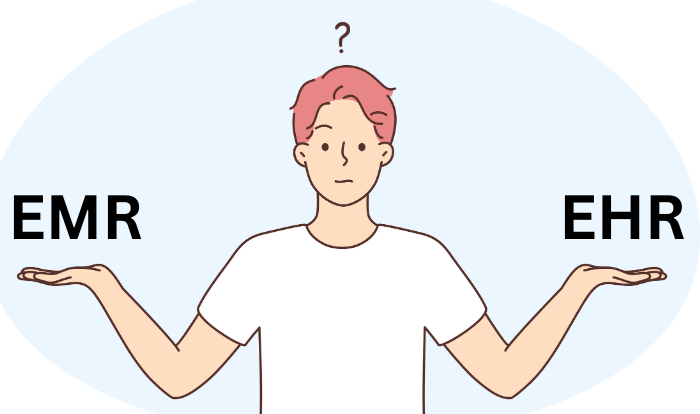EHR vs. EMR: Understanding the Difference
EMRs are essential for managing patient medical records, EHRs offer a more comprehensive solution that facilitates interoperability and improves overall healthcare outcomes.
Mithun
9/10/20241 min read


Electronic Health Records (EHRs) and Electronic Medical Records (EMRs) are often used interchangeably, but there are differences between the two. While both are digital versions of patient medical charts, they serve different purposes and have varying scopes.
Electronic Medical Record (EMR):
Focus: Primarily focused on the clinical aspects of patient care.
Scope: Limited to a single healthcare provider or facility.
Data: Primarily contains medical history, diagnoses, treatment plans, and medication information.
Electronic Health Record (EHR):
Focus: Encompasses a broader range of patient information beyond clinical data.
Scope: Extends beyond a single provider or facility, aiming for interoperability across the healthcare ecosystem.
Data: Includes EMR data plus additional information such as patient demographics, insurance details, and results from external labs or imaging centers.
Why Interoperability Matters
Interoperability is a key advantage of EHRs over EMRs. It allows for seamless data exchange between healthcare providers, improving patient care and reducing medical errors. For example, a patient's allergy information can be easily accessed by multiple providers, preventing adverse reactions, with patient's consent.
Why ABDM Certification Matters
ABDM certification is crucial for EHRs in India as it ensures:
Interoperability: Seamless data exchange between healthcare providers with patient's consent.
Standardization: Adherence to national standards for EHRs.
Data Security: Protection of patient data.
Integration: Compatibility with other digital health initiatives in India.
Choosing the Right Solution
The choice between EHR and EMR depends on the specific needs of a healthcare provider or organization. Smaller practices may find an EMR sufficient, while larger organizations or those involved in healthcare networks may benefit from the broader capabilities of an EHR.
Asimith by SwingBell Labs is an example of an ABDM-certified EHR that offers comprehensive features and benefits for healthcare providers in India.
In conclusion, while EMRs are essential for managing patient medical records, EHRs offer a more comprehensive solution that facilitates interoperability and improves overall healthcare outcomes. Understanding the differences between these two terms and the importance of ABDM certification is crucial for healthcare providers making informed decisions about their technology infrastructure.
Write to us
hello@swingbell.com
Want to know more? Drop in your email address
© 2025 SwingBell Labs LLP. All rights reserved.
LLPIN: ACF-3842
Cancellation & Refunds
